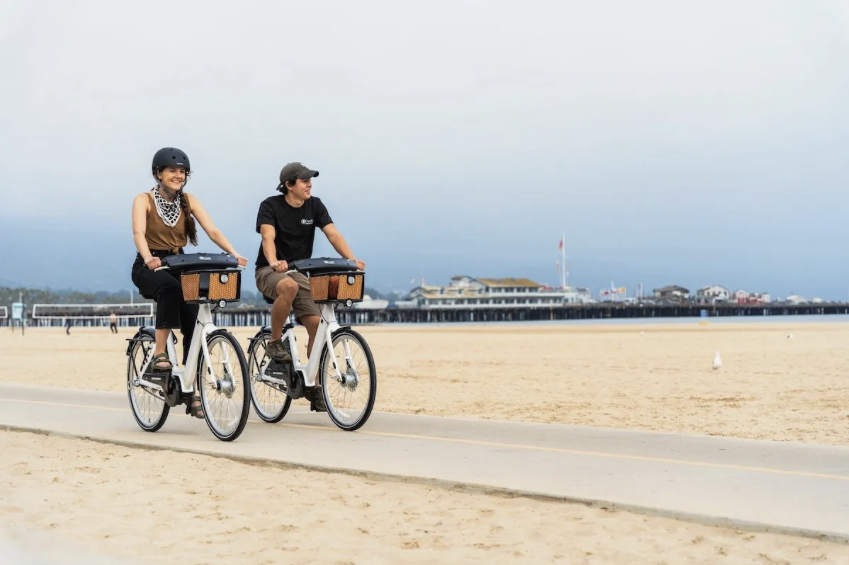State Grant to Help Get Low-Income Riders on E-Bikes in Santa Barbara
BCycle and City Hall Get $1.5M Grant to Add 50 E-bikes and 100 Bike Docks, Provide Vouchers

At a time when e-bike traffic has stirred up an abiding sense of collective consternation in some quarters, the City of Santa Barbara’s electric bike-share franchisee — BCycle — is expanding its service capacity to better serve low-income residents with a notable lack of any controversy. Last week, the City Council voted to accept a $1.5 million state grant that will help BCycle and City Hall cover the costs of fielding 50 additional e-bikes — and 100 additional bike docks — in downtown-adjacent neighborhoods. Currently, the company — owned by the Trek bicycle company — stations 250 e-bikes on the streets of Santa Barbara and 500 docking stations where bikes are picked up and turned in.
The state funding will also help cover the cost of providing vouchers to low-income residents. For residents meeting the income requirements, the vouchers will cost $25 a year plus sales tax. By contrast, BCycle’s annual pass currently goes for $225 a year.
Although BCycle has already offered special discounts to low-income riders, that program has never gained traction. That program accounts for less than 2 percent of all BCyle rides over the past three years. Councilmembers had high praise for BCycle’s existing program, but also stressed the importance of expanding outreach to the city’s Spanish-speaking populations.
Company officials acknowledge they’ve just scratched the surface so far. Many low-income residents, they noted, lack credit cards, don’t have cell phones, and may not be hooked up to the internet. BCycle is an app-based bike share program that relies on all three as the medium by which all transactions take place.
BCycle launched its Santa Barbara operation just as COVID hit. It’s white, pedal-assist e-bikes — which go no faster than 17 miles per hour — are considerably tamer than some of the friskier throttle rockets ridden by young teens, the ones frequently denounced for reckless riding practices and riding without their bike helmets safely strapped. The state funds — paid for with cap-and-trade revenues that allow oil companies and other greenhouse gas emitters to “buy” carbon-free credits — are designed to fund a four-year program.










